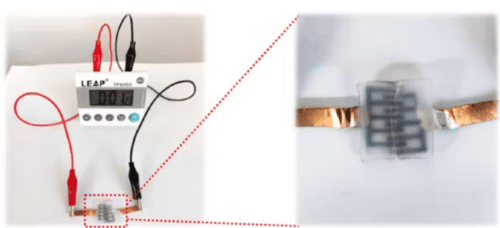By utilizing non-metallic charge carriers and ammonium salts in a polyvinyl alcohol hydrogel, the new AMB provides enhanced durability and performance, showing exceptional resilience in bending, twisting, and self-healing cycles.

Researchers from Guilin University of Technology, Huazhong University of Science and Technology, Anhui University, and Hubei University of Automotive Technology have developed a new type of battery for wearable devices. This self-healing aqueous micro battery (AMB) is claimed to be safer, cheaper, and more flexible than existing solutions.
The researchers stated that AMBs have struggled to meet their potential, as they need to withstand real-world bending and twisting to be viable for wearable devices. Most explored AMBs fail under such stress. The main issue with aqueous batteries, which use a water-based electrolytic solution, is that metallic compounds in the electrolyte react strongly with the metal in the electrodes, limiting performance. To address this, co-lead Junjie Shi and the team investigated non-metallic charge carriers, which would not face the same interaction difficulties with the electrodes.

The resulting battery incorporates ammonium salts into a polyvinyl alcohol (PVA) hydrogel, with a titanium carbide anode and a carbon nanotube matrix with manganese dioxide serving as the cathode. This design offers the advantages of AMBs, including self-healing when cut and fire resistance if punctured, while being flexible enough for wearable use.
The prototypes delivered 82.48µWh/cm⁻² energy and 3.09mW/cm⁻² power density, which the researchers claim is competitive with other designs. The batteries retained 81.67% capacity after 3,000 charge-discharge cycles. In flex testing, they maintained 95.68% capacity through 180-degree bending and 94.16% after ten self-healing cycles. The team is currently working on refining the prototype for commercial production. Able to self-heal if cut, resistant to fire, and bendable back to 180 degrees, the team claims that these batteries show real promise for future wearables.







